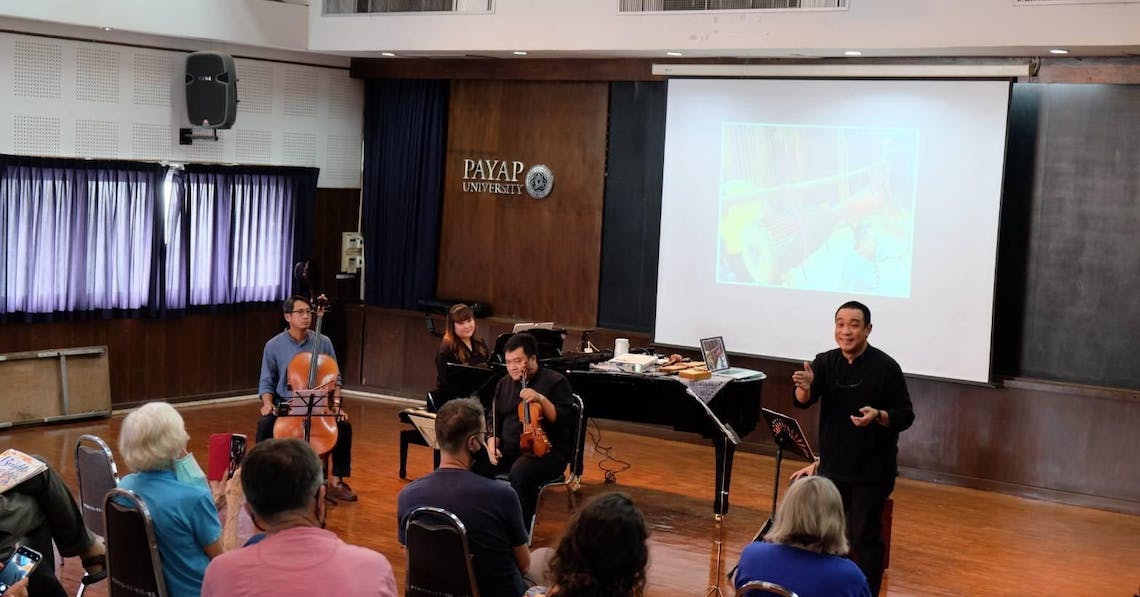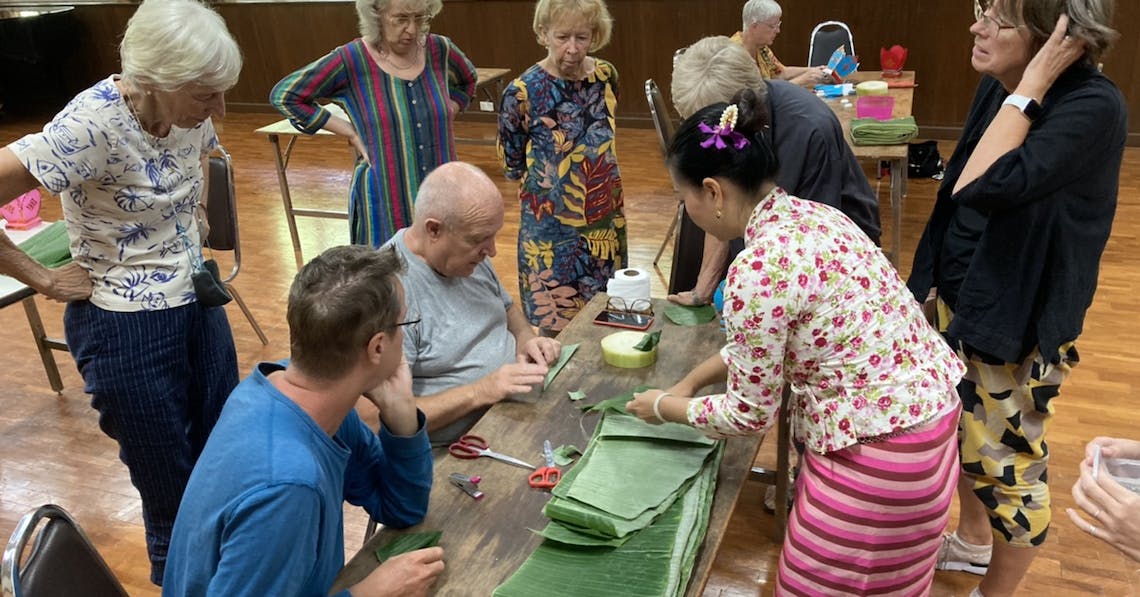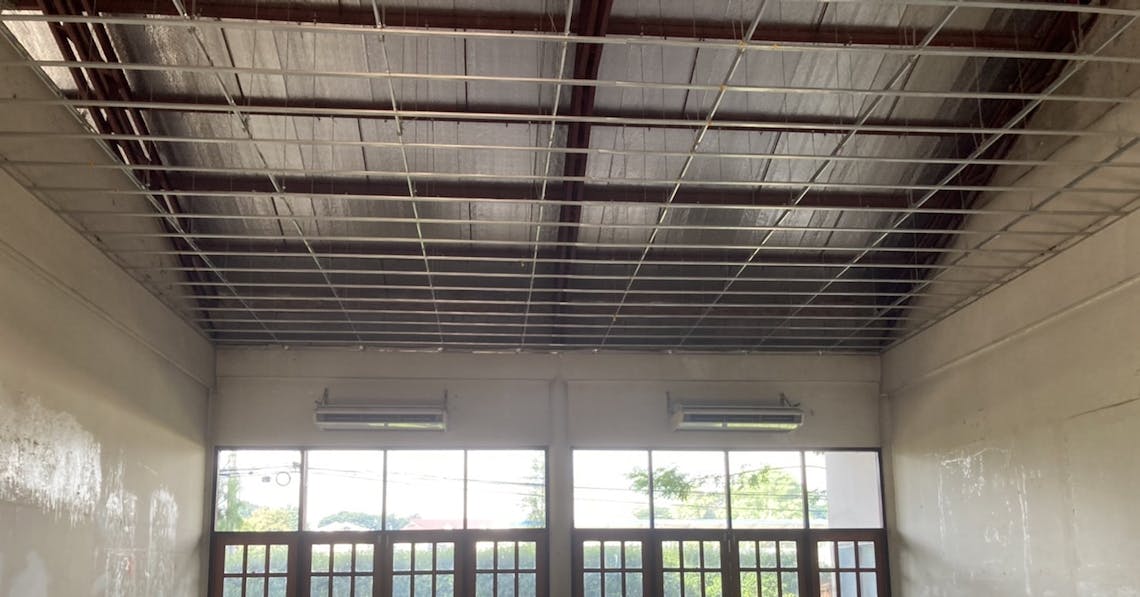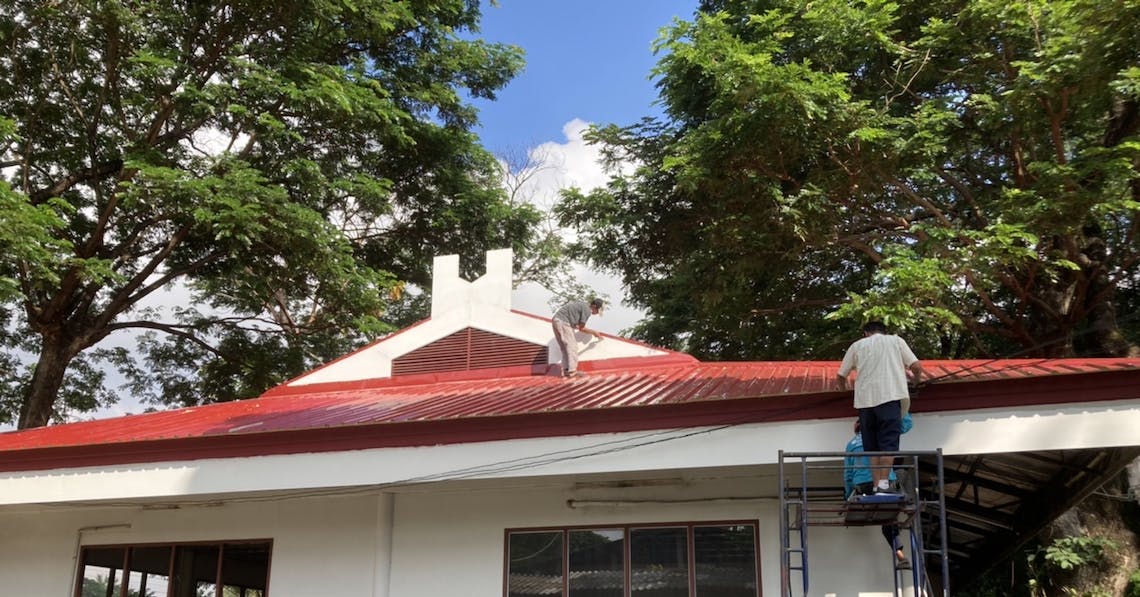As someone who has relocated more than 25 times, I know first hand that moving is one of the most stressful events in our lives. In each new city, I struggled to find doctors, mechanics, banks, hairdressers, and grocery stores. However, as many of you know, the stress of moving overseas is in a category all of its own. When I retired to Chiang Mai, along with the normal challenges, I had to adapt to an unfamiliar culture and language. Fortunately, soon after arriving, I discovered Payap Lifelong Learning (LLL), which made my immersion into Thai society so much easier.
Payap LLL was the inspiration of Martha Butt, who served as Vice-President of International Affairs for Payap University for 20 years. When she retired in 2008, she wasn’t quite ready to turn to a life of afternoon teas and gardening. “People from all over the world were retiring to Chiang Mai because of the reasonable cost of living, the weather, and good health care,” says Martha. “I knew that the area was ripe for an adult education programme tied to Payap University. And I knew it would be a great way for people of like interests to connect.”
Her vision came to fruition in 2016, when Payap agreed to provide the salary for a Programme Manager. That was when Martha began assembling a volunteer advisory committee to oversee operations. Four of the members: Martha Butt, Winnie Tan, Christine Tananone, and Rebecca Weldon, have each lived and worked in Thailand for decades. The newest member of the committee, Colleen Graham, brings 30 years of experience as an educator in Seattle, Washington.
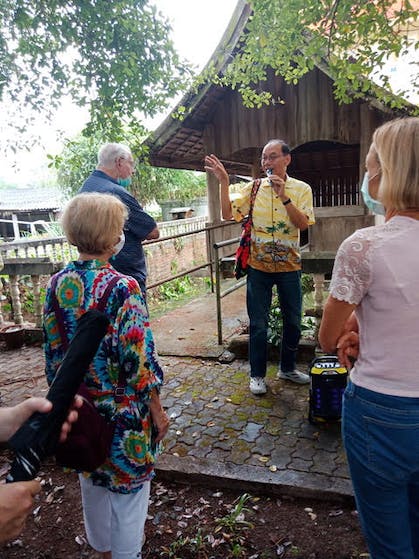
I’ve lost count of the number that I’ve attended. During multiple day excursions around northern Thailand I learned first-hand about the Haripunchai culture, which preceded the Lanna Kingdom, and the Chaeng Saen culture, which gave birth to Lanna. For a six-week course entitled “Reading the Raj” I read a series of books about the British Raj in Burma and Sri Lanka and participated in discussions that examined the motives of the authors. A traditional Lanna dance performance provided detailed interpretations of the dancers’ feet and hand movements. As a practicing Buddhist, I was particularly interested in classes presented by English speaking nuns and monks, who delved deeply into the philosophy of Buddhism. I’ve even taken yoga classes as part of the Payap LLL wellness programme.
One of the more unique course offerings is Film Appreciation. Participants watch a film in advance of each weekly meeting, then they discuss the artistic, cultural, emotional, technical, and political aspects of the film. Course facilitator Don Linder, an internationally award-winning scriptwriter, is perhaps best known for his films “The Last Executioner” and “The Cave,” which documented the rescue of the Thai soccer team that was trapped in a flooded cave in Chiang Rai.
Originally conducted in-person, the Film Appreciation workshops were among the many classes that were forced to move to Zoom due to COVID concerns. Providing online courses has opened programmes up to participants worldwide. “People in my classes bring all kinds of backgrounds and do a lot of research,” says Don. As a result, what was intended to be a one-time offering with six sessions has been going strong for years. According to Don, “It’s grown to be a real family.”
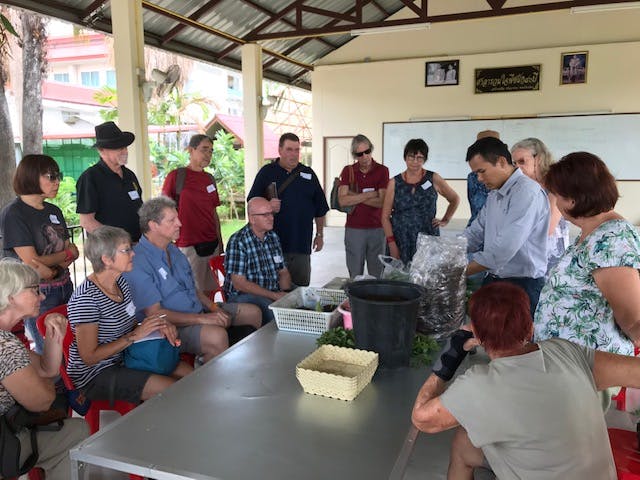
One member of that “family” is Bruce Kennedy, a 22-year resident of Chiang Rai. Pre-COVID he had only attended one LLL course taught by Chris Baker, a prominent historian and economist who writes and lectures extensively about Thailand. Zoom allowed him to participate in the Film Appreciation classes and he is delighted that some online courses will continue to be offered post COVID. “I love to learn new things, especially about the culture and environment of the country I live in.”
While Zoom made LLL globally accessible, most participants still prefer in-person learning. From the programme’s inception, classes have been held on the Kaew Nawarat Campus, wherever empty rooms could be found. By 2019, Payap Lifelong Learning was scrambling to find sufficient space. Last August, after four years of discussions with the Payap President and administrators, a small building on the Kaew Nawarat Campus was assigned to become the Lifelong Learning Center of Payap University.
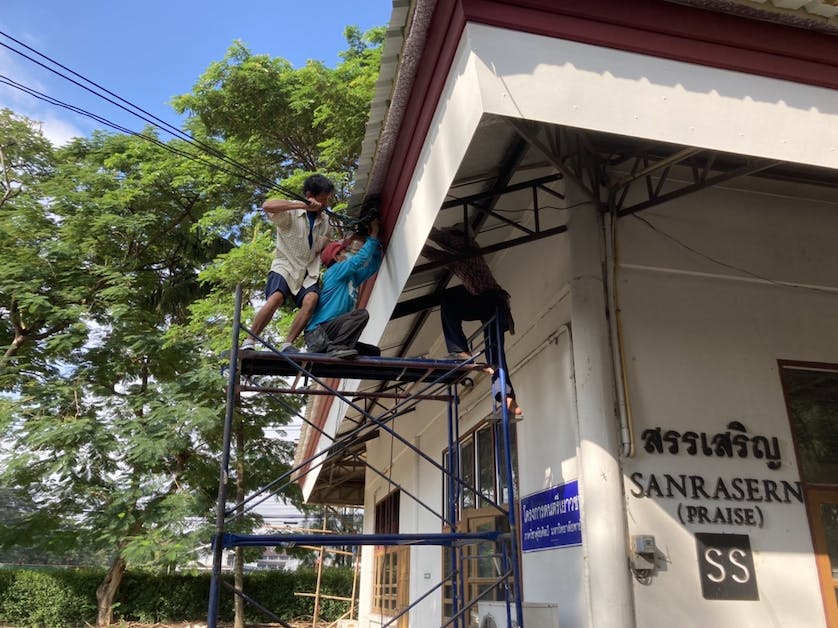
The building has been vacant for a number of years and is in poor repair. It needs a new roof, new flooring, repair and/or replacement of windows and doors, painting, and upgrades to the rest rooms. I recently joined Martha for a tour of the site and was astounded by the rapid progress. As part of the first phase of construction the inside has been gutted and a shiny new red metal roof is already in place. To date, about half of the funds required to complete the project have been raised. Donations raised during November and December will be earmarked for Phase 2 of the project which will include the new rest rooms, handicap accessible walkways, furnishings, and equipment.”
When complete, the largest of the three rooms will provide space for classes, workshops, movies, concerts, and special events. The two smaller classrooms will include a library, office, exercise room, and meeting/conference space. The new centre will provide a place where people can learn together, deepen their understanding of Thailand, develop multi-cultural friendships, and enhance the quality of their lives in Chiang Mai. Future plans even call for some classes to be presented in Thai. As Colleen Graham says, “It’s just the beginning. Once the new centre is open it will evolve in ways that we can’t even imagine at this point.”
For more information about the Payap Lifelong Learning program and its new home, visit their website: https://www.lllpayap.com, or contact Programme Manager, Ajarn Chananart (Fon) Putti, at lllpayap@gmail.com.
